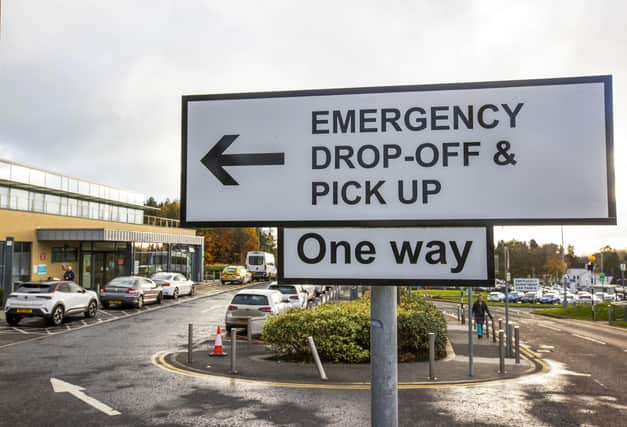Northern Ireland hospitals may not be able to cope in the event of 'true catastrophe' such as a bus crash, top A&E consultant warns


With winter pressures expected to intensify in the coming weeks, Accident and Emergency departments across Northern Ireland are already coming under intense strain, with hundreds of patients forced to wait on trollies for urgent care.
At the weekend, Antrim Area Hospital declared a “major incident” due to its inability to safely cope with the numbers attending A&E, while on Monday night the Ulster Hospital in Dundonald warned that it was under “extreme pressure” and it was reported by the BBC that a 77-year-old woman had died on a trolly following an hours-long wait for treatment at the emergency department of the Royal Victoria Hospital in Belfast.
Advertisement
Hide AdAdvertisement
Hide AdDr Paul Kerr, vice president of the Royal College of Emergency Medicine in Northern Ireland and an emergency medicine consultant since the 1980s who works primarily in the Belfast Trust area, said the current situation is “the worst it has ever been” as he warned of the “grim winter” ahead.
The consultant told the News Letter medics would now find themselves “scrambling around” if a “true catastrophe” were to take place in the near future.
Asked if Northern Ireland is likely to see further incidents similar to what happened in Antrim on Saturday, when the emergency department had to be closed, Dr Kerr said: “I think we are, unfortunately. It’s going to be difficult to turn this situation around quickly. It’s inevitable that this is going to be a very grim winter. What I would say about that is that situation has arisen many times and been described in other ways in other units.
“We are in a very precarious position across Northern Ireland, with gradually increasing crowding for quite a long time now.
Advertisement
Hide AdAdvertisement
Hide Ad“We have been going downhill in terms of what we call ‘flow’ through hospitals for quite a long time. What flow means is that when you come to a hospital, your ambulance moves quickly to bring you to hospital, you get seen by a doctor and if you’re an emergency admission you go to a bed quickly, and you stay for no longer than you have to in the hospital.
“What we’re facing at the moment is a situation where there’s dreadful crowding, and more recently patients haven’t been leaving hospital that are medically fit – that means that the crowding in emergency departments is very severe. It actually puts patients at risk.
“Then, of course, because those departments are crowded the ambulances are waiting longer and longer, and then the ambulances – maybe 20-25% of them might be sitting outside emergency departments – they aren’t go to see patients who have called an ambulance as quickly as they’d like to.”
Dr Kerr added: “If there was a true catastrophe, like a bus crash, we would have great difficulty providing proper care for those patients. In the past, it would have been easy to free up beds and to free up what we term as ‘capacity’ across the system. But we would be scrambling around. We would be doing our best as usual to provide care for those patients but some would be waiting much longer than they should.”